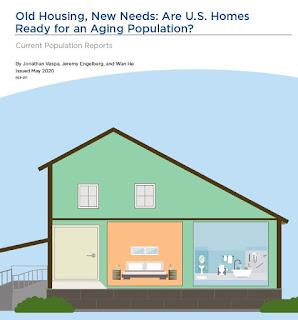From: Sara E. Ahern, Ed.D. Superintendent of Schools
Re: FY 21 Budget Development
Date: May 22, 2020
As you know, the Franklin School Committee adopted a budget of $68,767,873 on April 28, 2020, which represents a 6.03% increase over FY 20. The Town Administrator’s memo from May 1 indicates that revenue predicted in the Governor’s Budget from January would not support this budget and it would be anticipated that the School Committee would need to reduce it. According to this memo, the school department could expect an increased allocation from the Town amounting to $775,000 (although $275,000 would need to be earmarked towards substance abuse prevention efforts). An increase of $500,000 would leave a shortfall of $3.4 million.
Uncertainty remains about the FY 21 budget as economists are revising state-level revenue estimates, which are analyzed to be negatively impacted in light of the economic downturn experienced due to COVID-19 closures across the state. Towns and school districts across Massachusetts are preparing for reductions in state aid. The Town Administrator’s memo from May 21, 2020 outlines the potential impact of between 5-25% reductions to the Town of Franklin. It is not likely that we will know the state budget until summer.
Reductions to state aid would add to the shortfall already previewed at the last School Committee meeting. I estimate that this could amount to be between an additional $1-5 million in addition to the $3.4 million under the previous assumptions. A likely scenario would involve a 10% reduction to state aid bringing the shortfall to $ 5.4 million.
At the last School Committee meeting, I began to lay out a few areas to reduce the gap as well as their impact. We identified the following:
- Updated budget figures including anticipated Federal Funding through the CARES Act, prepaying special education tuition, applying additional revolving funds, and a decrease in costs based on revised budget projections in transportation, Human Resources, and Instructional Technology. Many of these items are short-term solutions. CARES Act funding is a one-time allocation, prepaying special education tuition creates a structural budget deficit for FY 22, and additional revolving funding is not always available each year.
- Reductions from the Critical Needs additions including the proposed REACH coordinator position and the proposed stipend for a Transition Specialist, resulting in less support towards these specialized services.
- Initial reductions to services including reducing the Teaching and Learning Office budget and reducing supplies and materials by 5% across all schools, meaning less professional development, curriculum development, and classroom supplies/materials.
I also previewed the likelihood of reducing positions across the district.
It is difficult to predict state aid numbers at this time but it is imperative that we plan now. In advance of the School Committee’s budget discussion on Tuesday, May 26, 2020, I wish to outline how we are preparing for two possible scenarios of budget reductions.
- Scenario 1: Reduced Budget based on Governor’s Budget from January
- Scenario 2: Reduced Budget based on a 10% reduction to state aid
 |
| two possible scenarios of budget reductions |
At this time, the administrative team is working to develop a series of recommendations to make to the School Committee in order to reduce the gap presented within these scenarios. Gaps of this magnitude are significant and every sector of the school department will be affected. As with building the budget, we frame our approach around our District Improvement Plan and vision. Additionally, these priorities guide our process:
- Consider enrollment at this moment, while also taking into consideration enrollment history of summer move-ins and our enrollment forecast
- Consider the impact of COVID-19 on FY 21 budgetary needs, as best we can predict at this time
- Reduce where students will be impacted the least in the core academic experience
- Scale back instead of broad programmatic cuts, where possible
- Apply a lens of equity across the district
- Not shift the burden further to PCC and Booster groups; our PCC and Booster groups raise hundreds of thousands of dollars to support students in our schools and in our athletic and arts programs. These dedicated volunteers are stretched very thin trying to support our students in areas cut years ago from previous school department budgets.
This is an extremely difficult and complicated task. First, the school department reduced the FY 20 budget in the following categories:
- $69,100 in reduced services including professional development, memberships, and material licenses.
- Reduction of 14.9 positions totaling $746,080
- Increase in the transportation fee, activity fee, and athletic fees to raise an estimated $174,030
We will continue to examine reduced services and we will work creatively to consider ways in which we can reduce the budget without impacting jobs. Nonetheless, with personnel being the largest expense across the school district encompassing 85% of the budget with benefits, reductions of positions is anticipated. Under scenario 1, we could forecast a loss of as many as 25 positions (based on an average salary of $75,000). Under scenario 2, we could forecast as many as 50 positions (based on an average salary of $75,000).
While the Town Administrator is planning the town budget based on the Governor’s Budget and is awaiting further state-level information, he forecasts further reductions to the town budget in the fall and winter. That being said, the school department budget cycle necessitates our planning now. It is extraordinarily difficult to nearly impossible to make this level of reduction once the school year starts. Rather, we need to plan for the likely scenario now, with the hopes of a better forecast so that we may add back to our budget in the future, although that seems unlikely.
In the coming weeks, we will present options to the School Committee and the School Committee will have an opportunity to discuss and provide input on these items throughout development through on-going budget subcommittee and regular School Committee meetings. The School Committee’s budget will be discussed at the Finance Committee on May 28, 2020 and at the Town Council’s Town Budget Hearing, scheduled for June 17 and June 18, 2020.
Further Reductions to State Aid
The likely scenario for which we are currently preparing involves a reduction of 10%, which is a figure many districts are using to plan for FY 21. However, Chapter 70 aid was reduced by 20% in the 2009 economic downturn; this estimate is being used by some for local budget planning. Should Chapter 70 aid be reduced further to 15% or 20%, this would approximate an additional $1-2 million in reductions, equating to an additional 13-27 positions.
In 2009, the Federal government supported state and local revenue reductions with ARRA funds, mitigating the impact. At this time, there is no certainty of additional Federal funding to mitigate the impact of reduced state revenue, although some are hopeful.
Looking Ahead to FY 22
Last year, during the FY 20 budget development process, I wrote, “I wish to express my grave concern about the ongoing fiscal forecast for FY 21 and the possibility of further and more extensive reductions to the school department.”
The COVID-19 closure and economic downturn magnify an already existing structural budget deficit for Franklin Public Schools. A level service budget for FY 21 would have been
$68,231,057, or a 5.2% increase of $3,372,557 at a time when local revenue projections for the entire town were $3,500,000.
Franklin is in less of a position to rely on state aid than it has been in the past. Over the years, the expectation for minimum local contribution has increased due to the increase in local property values and median income within the town. State aid has contributed 54% of the school budget in FY2011 going down to 43.8% in FY 20, while local contribution has risen from 46% to 56.2% based on the state’s expectation of local contribution. A trend we expect to see in the long term is that maintaining even level service budgets in the future will be difficult under the current revenue formulas as well as long term economic forecasts.
The community is rightfully proud of the Franklin Public Schools. Unfortunately, we have a turbulent time ahead but our collective goal remains of supporting the growth and development of each Franklin student so that they have the social, emotional, academic and career skills to be productive citizens in an ever-changing world.
Download your copy of this important memo
https://www.franklinps.net/district/meeting-packets/files/budget-memo-0
 |
| screen grab of virtual School Committee meeting 5/26/20 |







